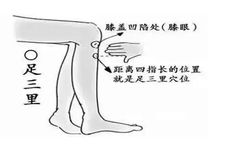
According to the “Classification and Identification of TCM Constitutions” standard, TCM constitutions are divided into Pinghe Zhi (平和质, Harmonious Constitution), Qi Xu Zhi (气虚质, Qi Deficiency Constitution), Yang Xu Zhi (阳虚质, Yang Deficiency Constitution), Tan Shi Zhi (痰湿质, Phlegm-Damp Constitution), Yin Xu Zhi (阴虚质, Yin Deficiency Constitution), Shi Re Zhi (湿热质, Damp-Heat Constitution), Qi Yu Zhi (气郁质, Qi Stagnation Constitution), Xue Yu Zhi (血瘀质, Blood Stasis Constitution), and Te Bing Zhi (特禀质, Special Constitution), totaling nine types. Among these, Pinghe Zhi is considered a healthy state, while the other eight types are classified as偏颇体质 (biased constitutions), indicating a deviation from the normal range in one or more elements of constitution.


Constitutional Manifestations

01
Pinghe Zhi——Relatively Normal
● Constitutional State:
The state of harmony among Yin, Yang, Qi, and Blood, characterized by a moderate, well-proportioned, and robust physique, rosy complexion, and abundant energy. Individuals with Pinghe Zhi generally have normal eating habits and regular bowel movements; they rarely fall ill, do not easily tire, and possess good self-regulation abilities. They tend to have an optimistic personality and adapt well to external environments.
● Regulation Suggestions:
Individuals with Pinghe Zhi should maintain a “Doctrine of the Mean” in health preservation, avoiding excessive supplementation. They should pay attention to the “Four No’s” (not overeating, not starving, not too hot, not too cold), and consume more grains, vegetables, and fruits.
They should adhere to a regular schedule, ensure adequate sleep, and balance work and rest.
02
Qi Xu Zhi——Often Weak
● Constitutional State:
Characterized by insufficient Yuan Qi, with weak breath and low organ function as primary features. Commonly accompanied by fatigue, shortness of breath, and spontaneous sweating, indicating Qi deficiency.
Individuals with Qi Xu Zhi often have soft muscles, tend to be short of breath, quiet, soft-spoken, mentally fatigued, and physically weak. They are usually introverted, emotionally unstable, timid, and dislike taking risks.
People with Qi Xu Zhi are intolerant to cold, wind, and heat, have a weaker constitution, and are prone to colds, which are difficult to recover from.
● Regulation Suggestions:
Individuals with Qi Xu Zhi should focus on tonifying the middle, boosting Qi, and nurturing the Yuan Qi to replenish energy. Regularly massaging the Zusanli (足三里) point is recommended.
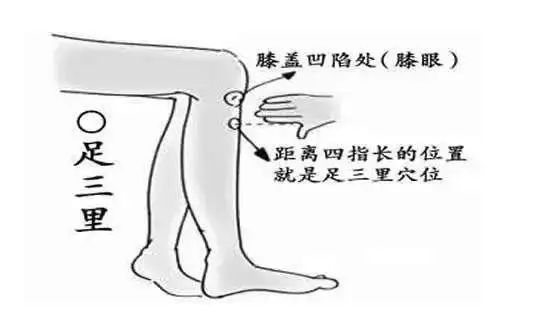
Engaging in gentle exercises, such as Baduanjin (八段锦) or Wuqinxi (五禽戏), is advisable, avoiding excessive sweating or strenuous activities, and refraining from forceful or prolonged breath-holding actions.
03
Yang Xu Zhi——Most Afraid of Cold
● Constitutional State:
Characterized by insufficient Yang Qi, leading to a lack of warmth, with fear of cold, cold hands and feet as primary features.
Individuals with Yang Xu Zhi often have a pale and plump physique, soft muscles, and are very sensitive to cold, easily affected by dampness, particularly in the upper abdomen, neck, or lower back.
This group prefers hot drinks and may experience loose stools and clear, scanty urine. Yang Xu Zhi individuals are generally quiet and introverted, enjoying tranquility.
● Regulation Suggestions:
Those with Yang Xu Zhi should focus on nurturing Yang Qi and dispelling cold. They can self-massage the Qihai (气海), Zusanli (足三里), and Yongquan (涌泉) points or frequently use moxibustion on the Zusanli and Guanyuan (关元) points.
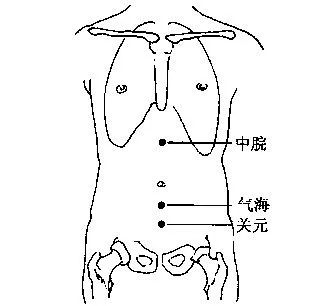

They should pay extra attention to warmth, especially in the abdomen, back, and soles of the feet. During the warm spring and summer, they should focus on replenishing Qi and avoid prolonged stays in air-conditioned rooms. Exercise should be gentle, avoiding excessive sweating that could harm Yang.
04
Yin Xu Zhi——Most Afraid of Heat
● Constitutional State:
Characterized by insufficient Yin fluids, with dry mouth and throat, hot palms and soles as primary features.
Individuals with Yin Xu Zhi often have a slender physique, red tongue with little coating, and frequently feel heat in the palms, flushed cheeks, and dry skin, often experiencing tidal fever and night sweats.
Yin Xu Zhi individuals tolerate winter but not summer, are sensitive to heat and dryness, prefer cold drinks, and often experience dry mouth, dry eyes, and constipation.They tend to be irritable, extroverted, and prone to insomnia.
● Regulation Suggestions:
Those with Yin Xu Zhi should focus on nourishing Yin and moistening dryness, and can self-massage the Neiguan (内劳宫) and Liyin (历兑) points.
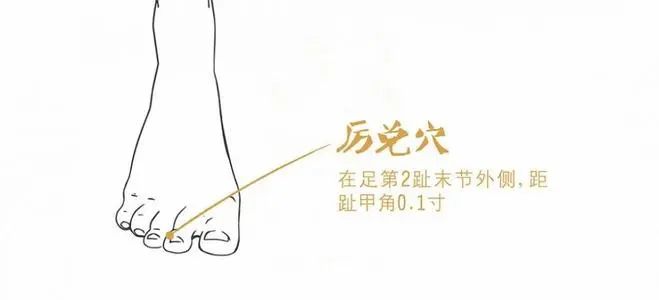
Yin deficiency generates internal heat, while Yang deficiency generates external cold. The dietary approach for Yin Xu Zhi is opposite to that of Yang Xu Zhi, allowing for the consumption of sweet, cooling, and moistening foods, such as mung beans, black fungus, and lily bulbs; spicy and warming foods should be avoided, as well as foods that dispel dampness.
They should follow the principle of “calmness and emptiness, with the spirit inwardly guarded,” avoiding impatience, listening to soothing music, and engaging in gentle exercises.
05
Tan Shi Zhi——Prone to Obesity
● Constitutional State:
Characterized by the accumulation of water and phlegm in the body, with sticky, heavy, and turbid characteristics, and a coated tongue as primary features.
Tan Shi Zhi individuals are often overweight, especially in the abdomen, with a soft and full abdomen, prone to sweating and stickiness. Their faces tend to be oily, and they often feel sticky in the mouth and have excessive phlegm, with a thick tongue coating.
Tan Shi Zhi individuals have poor adaptability to the plum rain season and humid environments, making them prone to dampness-related conditions. They are generally mild-mannered, steady, humble, and patient.
● Regulation Suggestions:
Individuals with Tan Shi Zhi should focus on resolving phlegm and dampness, and can self-massage or use moxibustion on the Shenque (神阙), Guanyuan (关元), Zhongwan (中脘), Tianshu (天枢), and Zusanli (足三里) points.
Dietarily, they should consume foods that strengthen the spleen and resolve dampness, such as kelp, poria, red adzuki beans, and lotus leaves, and can drink adzuki bean, coix seed tea. However, they should avoid fatty meats and sweet, sticky, and oily foods, focusing on a light diet.
Individuals with Tan Shi Zhi should stay in warm, dry places, reduce outdoor activities during rainy weather, and avoid dampness exposure. Regular exercise is essential to gradually firm up loose muscles.
06
Shi Re Zhi——Prone to Oily Skin
● Constitutional State:
Characterized by internal damp-heat, with oily skin, bitter mouth, and yellow, greasy tongue coating as primary features.
Individuals with Shi Re Zhi have a medium build, often with a shiny nose, prone to acne, and frequently experience dry mouth and bitter taste, with women often experiencing excessive vaginal discharge.
Shi Re Zhi individuals struggle to adapt to humid or hot environments, such as late summer and early autumn. They tend to be irritable and quick-tempered.
● Regulation Suggestions:
Those with Shi Re Zhi should focus on clearing heat and transforming dampness, and can massage the Yinlingquan (阴陵泉), Quchi (曲池), and Zhigou (支沟) points.
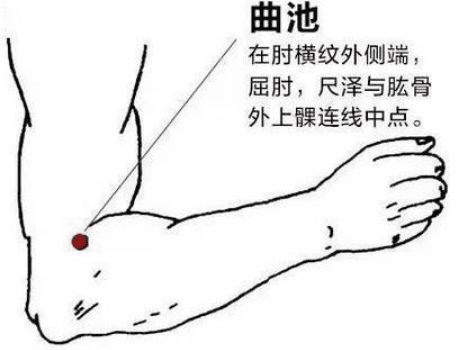
Dietarily, they should focus on light foods, consuming more foods that clear heat and drain dampness, such as poria, and can drink water infused with ginger or winter melon peels.
07
Xue Yu Zhi——Prone to Forgetfulness
● Constitutional State:
Characterized by poor blood circulation, with a tendency for blood stasis or obstruction, primarily manifesting as blood stasis.
Individuals with Xue Yu Zhi are often slender, with a dull complexion, pigmentation, rough skin, and are prone to bruising. They typically have dark lips, a tongue with stasis spots or patches, and red veins in the eyes.
Individuals with Xue Yu Zhi are intolerant to wind and cold, and are prone to conditions like diabetes and stroke. They often have a repressed personality, are irritable, and prone to forgetfulness.
● Regulation Suggestions:
Those with Xue Yu Zhi should focus on invigorating blood and resolving stasis, and can self-massage the Qihai (气海), Ge Shu (膈腧), and Xue Hai (血海) points.
Dietarily, they should consume foods that invigorate blood circulation, such as coriander, safflower, or cooling blood invigorating foods like black fungus and eggplant, as well as hawthorn, vinegar, rose, and kumquat, while avoiding fatty meats.
For individuals with Xue Yu Zhi, exercise is the simplest and most cost-effective method to regulate the body, engaging in activities that promote Qi and blood circulation, such as Yijinjing (易筋经) or Wuqinxi (五禽戏).
08
Qi Yu Zhi——Prone to Insomnia
● Constitutional State:
Characterized by long-term emotional stagnation, leading to Qi stagnation, primarily manifesting as an introverted, unstable personality, with feelings of depression, fragility, and sensitivity.
Individuals with Qi Yu Zhi are often slender, with a melancholic appearance, frequently tense and anxious, experiencing chest tightness or breast tenderness, and often sighing.They have a poor ability to adapt to mental stimuli and dislike rainy days.
● Regulation Suggestions:
Individuals with Qi Yu Zhi should focus on soothing the liver and regulating Qi, and can use moxibustion on the Jianjing (肩井), Danzhong (膻中), Qimen (期门), Sanyinjiao (三阴交), Tai Chong (太冲), and Xingjian (行间) points, or massage the liver and gallbladder meridians.
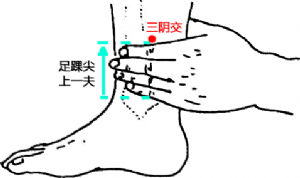
They should participate in outdoor activities and consciously cultivate an optimistic mindset; daily exercise should also focus on outdoor activities, such as hiking.
09
Te Bing Zhi——Prone to Allergies
● Constitutional State:
Characterized by insufficient innate endowment and hereditary factors, leading to a special constitution with physiological defects and allergic reactions.
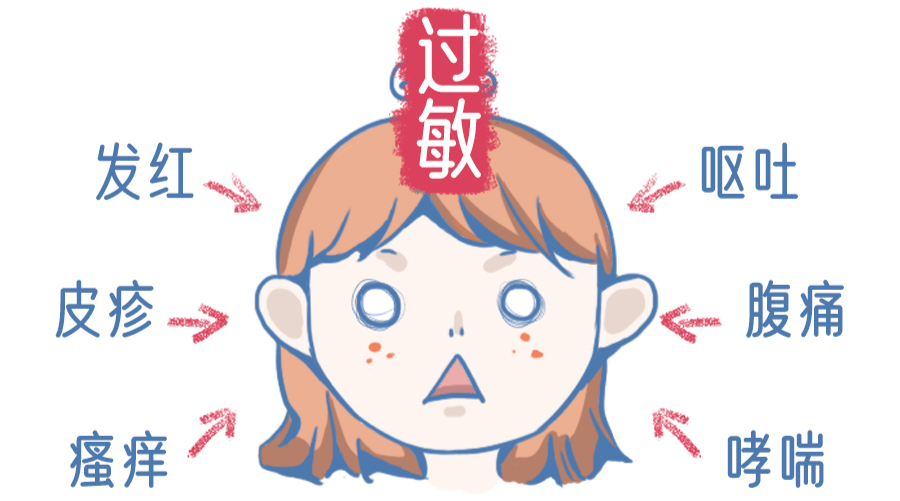
Individuals with Te Bing Zhi often have poor adaptability, such as those with allergic constitutions who struggle during allergy seasons, easily triggering chronic conditions.
They may frequently experience nasal congestion, sneezing, and runny nose even without a cold, and are prone to allergies from medications, foods, odors, and seasons, with skin becoming red and marked from scratching.
● Regulation Suggestions:
Individuals with Te Bing Zhi should focus on a light, balanced diet, with appropriate combinations of coarse and fine foods, and reasonable meat and vegetable pairings. They should avoid pungent and stimulating foods and stay away from allergens based on their individual conditions.


It is important to note that TCM constitution is not static; it can be influenced by innate factors, diet, emotions, physiological structure, geography, and society. Additionally, the constitution may change at different stages of illness and treatment. Therefore, identifying TCM constitution requires a dynamic approach, with timely adjustments and improvements to maintain health.
 END
END
*This article is for informational reference only and should not be used as a basis for diagnosis or treatment; please consult a professional physician for specific guidance.

